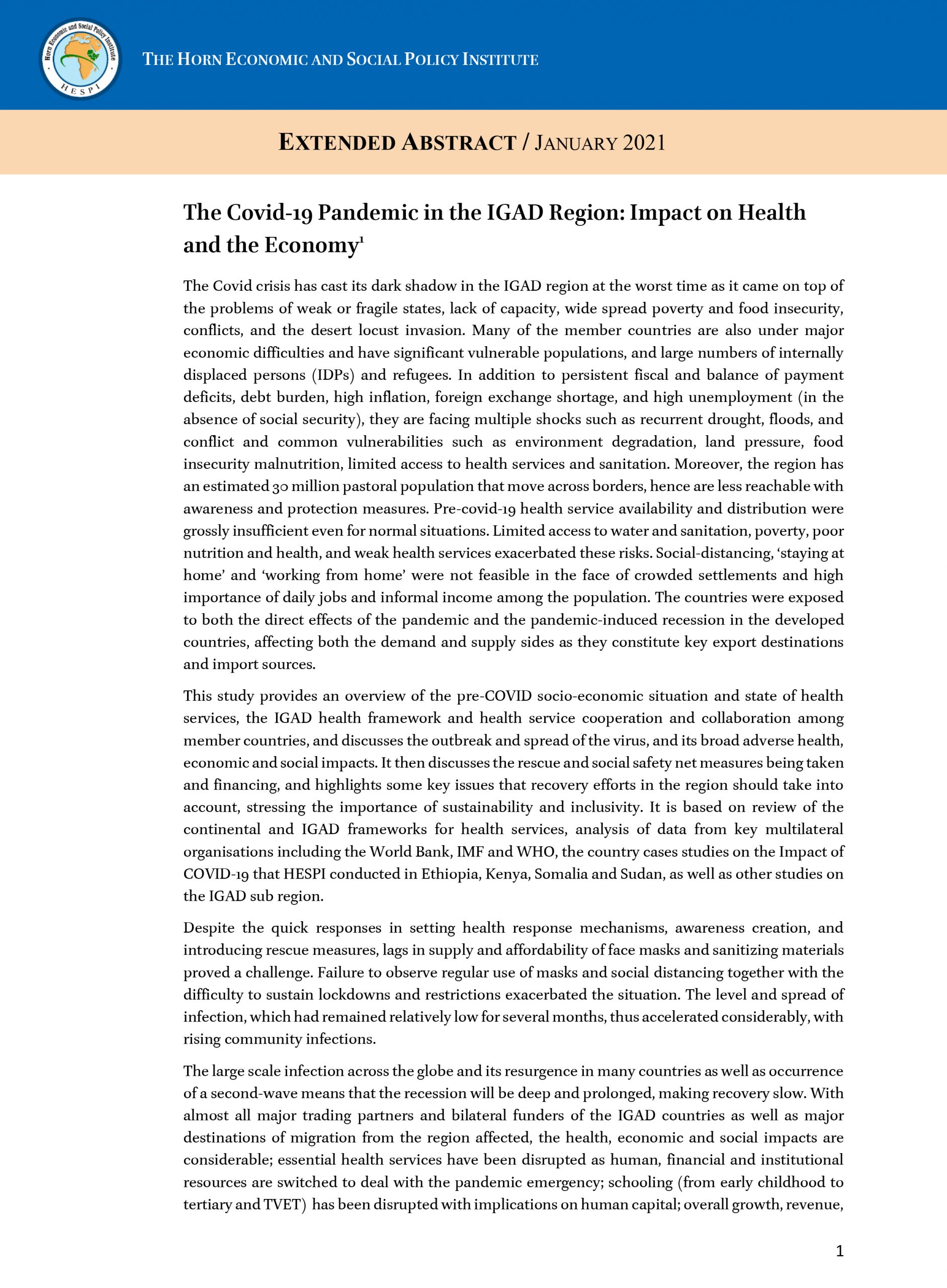The Covid-19 Pandemic in the IGAD Region: Impact on Health and the Economy
--------------------------------------------------------------------

The Covid crisis has cast its dark shadow in the IGAD region at the worst time as it came on top of the problems of weak or fragile states, lack of capacity, wide spread poverty and food insecurity, conflicts, and the desert locust invasion. Many of the member countries are also under major economic difficulties and have significant vulnerable populations, and large numbers of internally displaced persons (IDPs) and refugees. In addition to persistent fiscal and balance of payment deficits, debt burden, high inflation, foreign exchange shortage, and high unemployment (in the absence of social security), they are facing multiple shocks such as recurrent drought, floods, and conflict and common vulnerabilities such as environment degradation, land pressure, food insecurity malnutrition, limited access to health services and sanitation. Moreover, the region has an estimated 30 million pastoral population that move across borders, hence are less reachable with awareness and protection measures. Pre-covid-19 health service availability and distribution were grossly insufficient even for normal situations. Limited access to water and sanitation, poverty, poor nutrition and health, and weak health services exacerbated these risks. Social-distancing, ‘staying at home’ and ‘working from home’ were not feasible in the face of crowded settlements and high importance of daily jobs and informal income among the population. The countries were exposed to both the direct effects of the pandemic and the pandemic-induced recession in the developed countries, affecting both the demand and supply sides as they constitute key export destinations and import sources.
This study provides an overview of the pre-COVID socio-economic situation and state of health services, the IGAD health framework and health service cooperation and collaboration among member countries, and discusses the outbreak and spread of the virus, and its broad adverse health, economic and social impacts. It then discusses the rescue and social safety net measures being taken and financing, and highlights some key issues that recovery efforts in the region should take into account, stressing the importance of sustainability and inclusivity. It is based on review of the continental and IGAD frameworks for health services, analysis of data from key multilateral organisations including the World Bank, IMF and WHO, the country cases studies on the Impact of COVID-19 that HESPI conducted in Ethiopia, Kenya, Somalia and Sudan, as well as other studies on the IGAD sub region.
